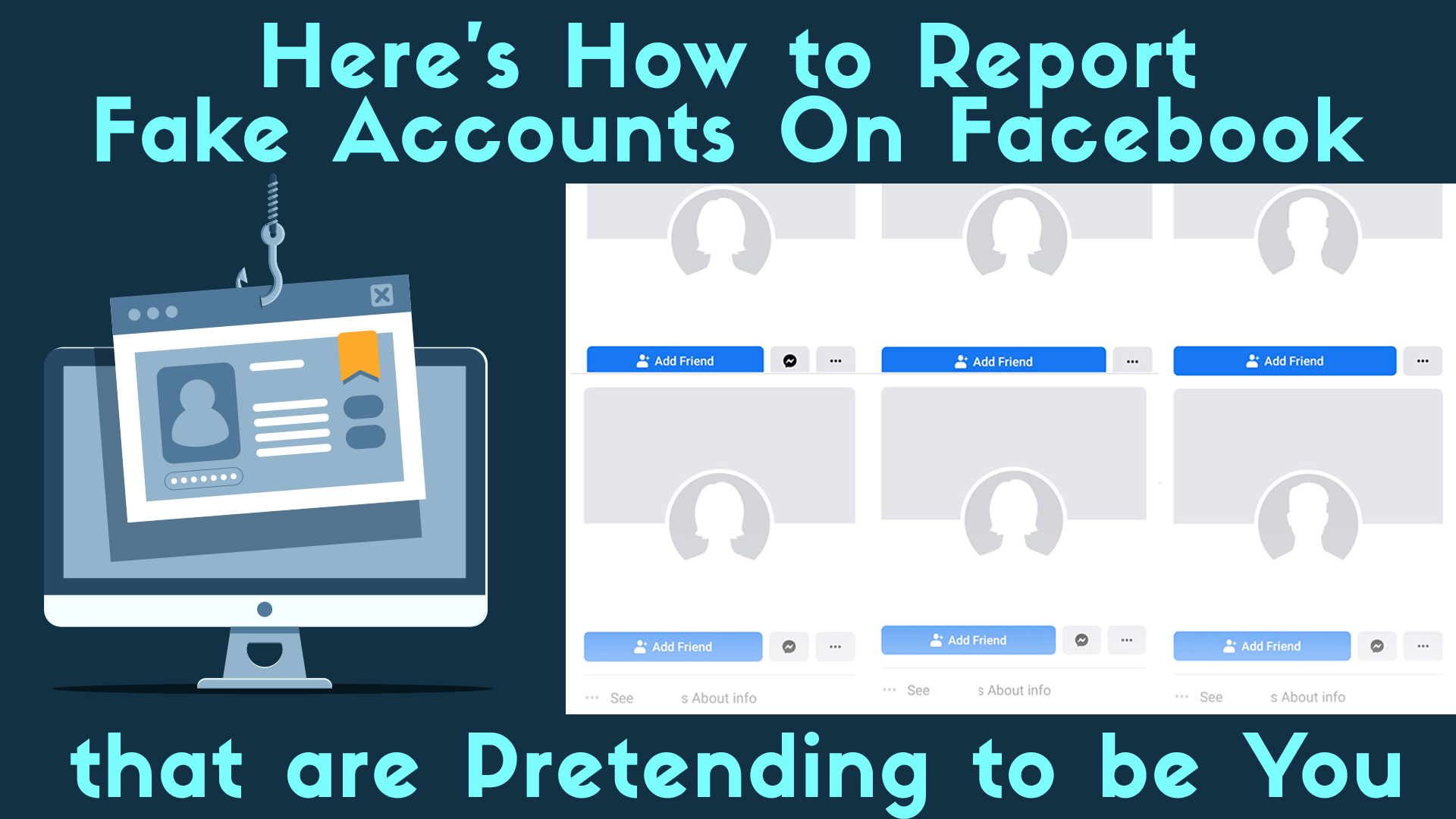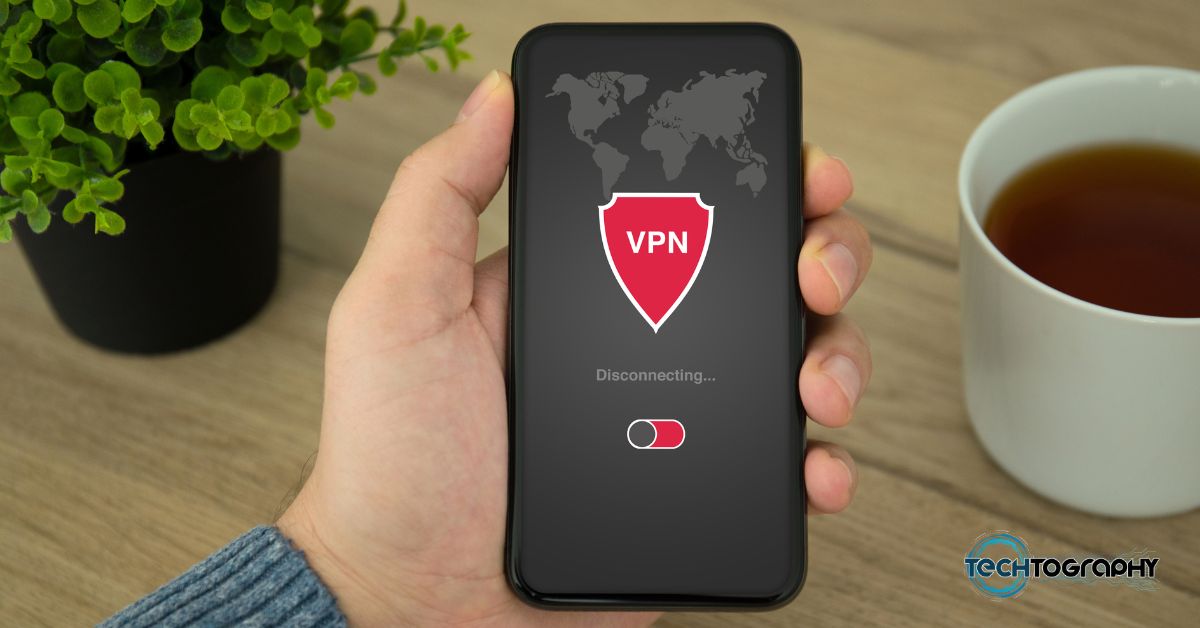In this Blog Post:
Due to unprecedented times where more people are turning online for social activities and updates on the current events happening around the globe, an onslaught of cybercrimes has become more rampant than ever. One of the most common is identity theft among social media platforms, especially now so that creating an account has become much easier.
In this blog post, let us discuss how to find out if someone is stealing your identity on social media, what to do in case you find dummy accounts with your name, and how to protect yourself from identity theft online.
What is Identity Theft?
Identity theft is a type of fraud wherein an impostor uses a person’s key information to either gain advantage from the person’s identity or destroy the person’s reputation. This can be done online or offline, but with the existence of social media platforms, online true name identity theft is more common.
How to Find out if someone is pretending to be you
Catfishing and fake accounts are common issues in social media platforms so you can easily detect if someone is impersonating you by doing a search of your name on the search bars of Facebook. Better yet, make it a habit to Google your name every once in a while. If you do find an account that is suspiciously using the same information as you, don’t panic and follow the steps on the next part of this blog post.

How to report Fake Accounts on Facebook
- Go to the profile or Page of the impersonating account.
- If you can’t find it, try searching for the name used on the profile or Page or asking your friends if they can send you a link to it.
2. Click 

If you’re reporting a Page, select Find Support or Report Page. If you’re reporting a profile, select Find Support or Report Profile.
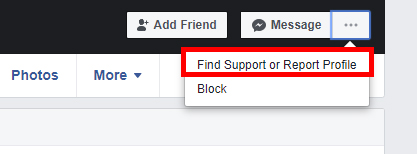
3. Click on the Pretending to Be Someone option, and then choose whether the account is pretending to be you or your friend. Then provide the real account it is posing as and Click Next.
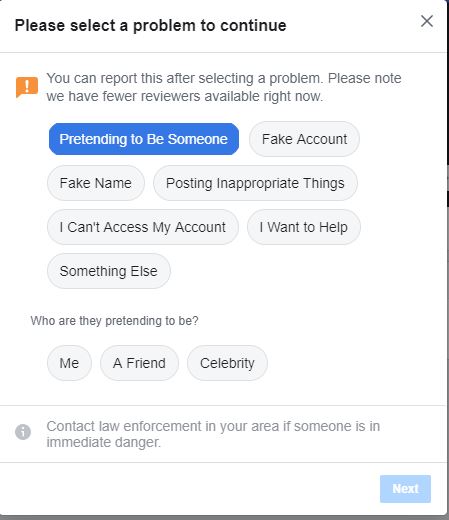
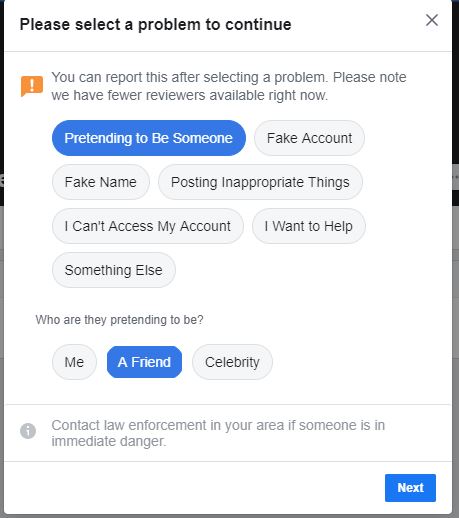
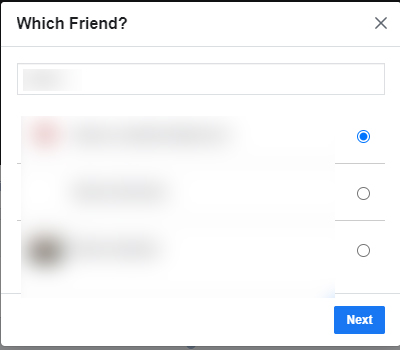
4. Since this is against Community Standards of Facebook, click Report Profile and submit to Facebook for review.
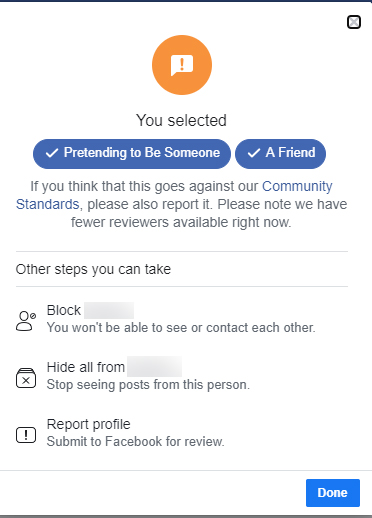
5. Tick the checkbox stating “I believe that this goes against Facebook’s Community Standards” and click Report.
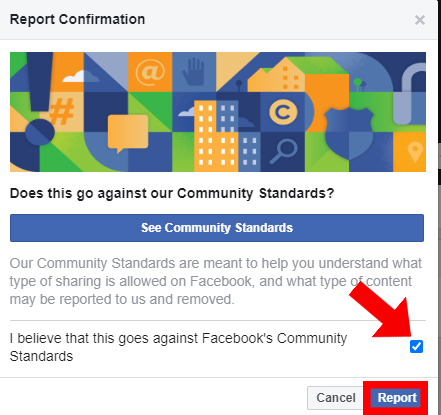
You can check the status of things you’ve reported at the Support Inbox.
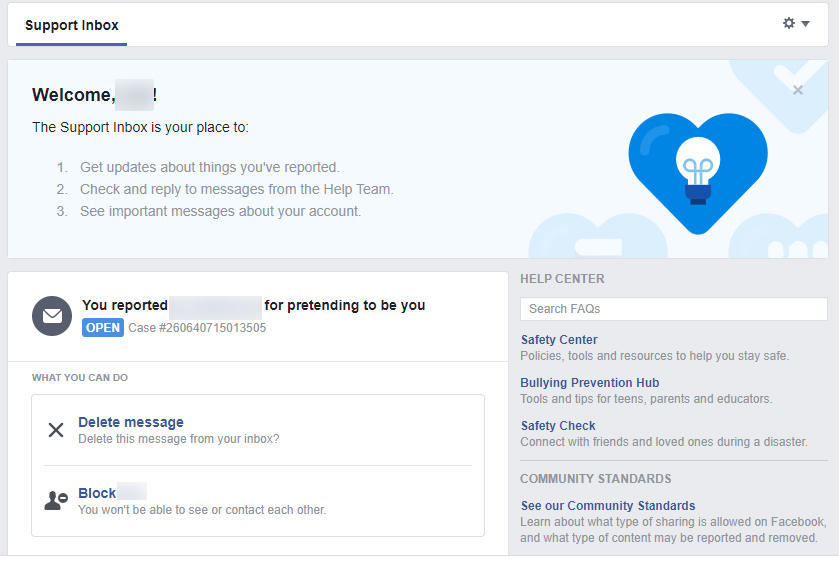
Bonus: Inform your friends on social media about the fake accounts that have emerged so that they would be vigilant in case someone messaged them pretending to be you, and politely ask them to help you report these fake accounts so that the account will be taken down by Facebook as soon as possible.
Another bonus: The Cyber Security Philippines – CERT is urging those who are having fake account issues to report a complaint to the National Privacy Commission. Click here to file a complaint.

How to Protect Yourself From Identity Theft
Anyone can be a victim of identity theft online. You can protect yourself from becoming a prey to these posers by practicing the following:
Don’t Reveal Everything About Yourself
Never give out personal information that will make it easy for posers to copy your profile. Always check the privacy settings of your post, got to your profile, and use the View As feature of Facebook to see what information is visible to strangers on your timeline.

If you have photos and posts that was tagged by your friends and is set to Public, politely message them in private and request them to change the privacy settings of the post or untag your profile.
Routinely Change Your Password
Regularly mix up your passwords and don’t use easy ones that will easily give away access to your profile. Use the Two-Factor Authentication feature of Facebook so that every time you log into a new device, you will be notified and you can confirm if it is indeed you that is logging in or someone is attempting to hack your account.
Social media purge
Gone are the days when the number of Facebook friends are used as vanity metrics to measure how popular a person is. Avoid confirming friend requests blindly and rigorously check your friends’ list for suspicious accounts that might just be snooping around your profile and unfriend or block as needed.
Beware of Phishing links
Be vigilant when clicking links online. Phishing links might appear legit and its goal is to trick you into clicking the link so they can obtain personal information from you. When in doubt, don’t click.
Be Responsible Online
With information being an essential resource especially now that we’re in the middle of a pandemic, it is always advisable to be responsible of all our online activities- what you post and share, what you click, what you see. If you see a troll account doing destructive activities online, inform the owner of the real account, share this blog post so they know the steps they can take and join in by reporting the dummy profile.
